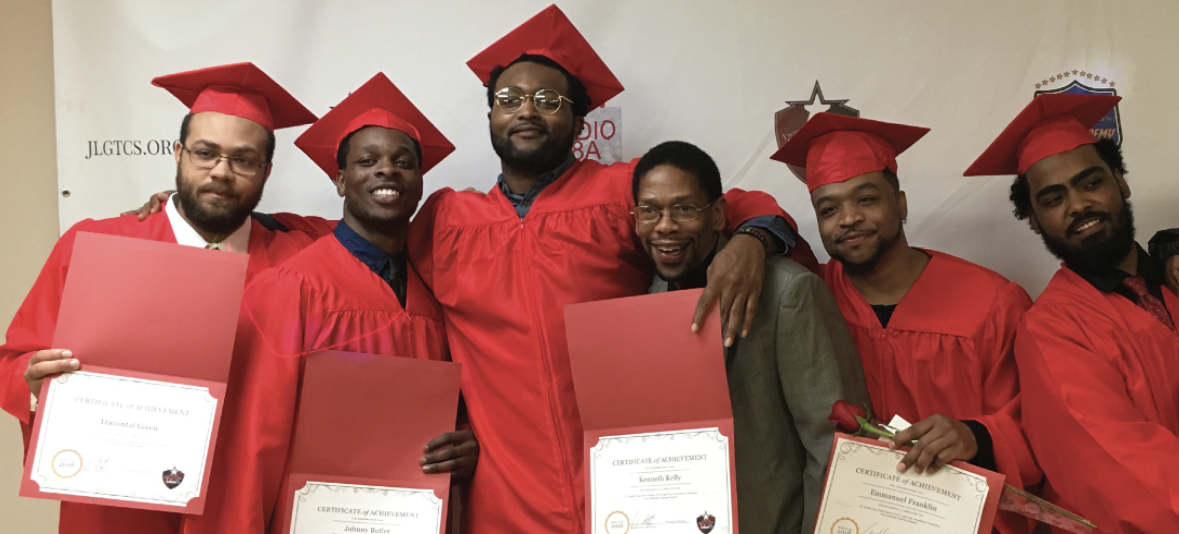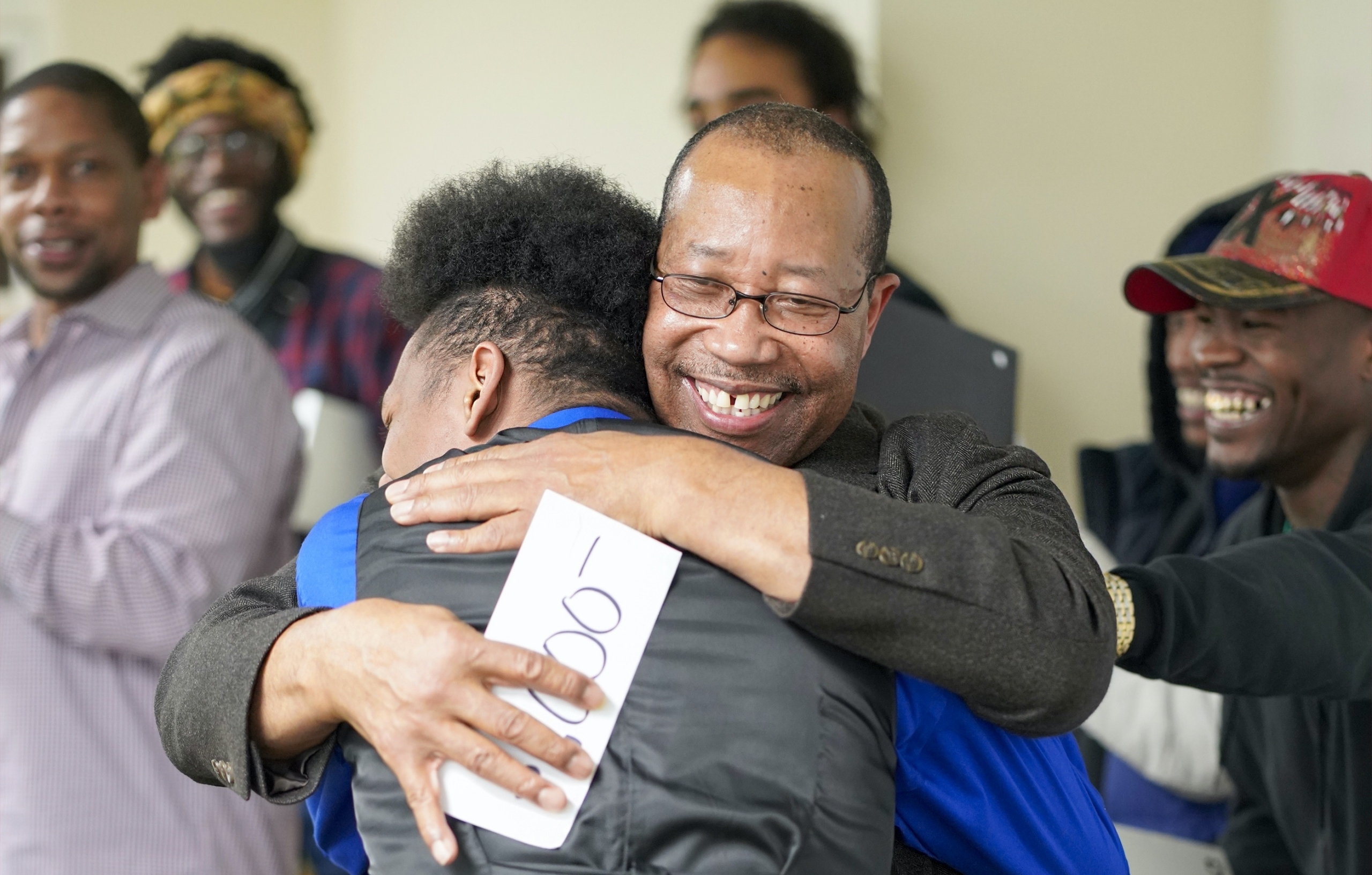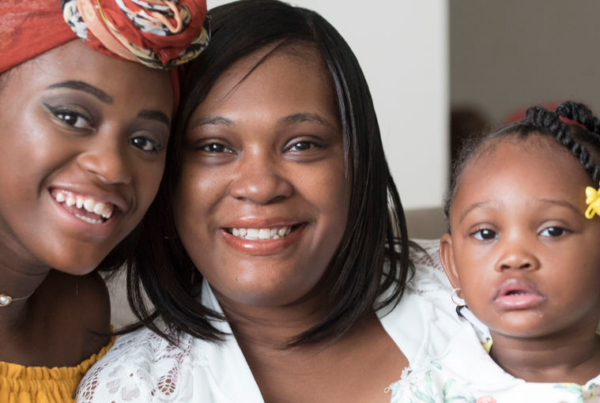When you arrive at Ujamaa Place’s offices, they are expecting you. They greet you by name, take your temperature, log it, eyeball your mask to make sure it’s secure, then accompany you to the conference room like you’re a guest in their home walking through the living room to the kitchen for a snack. Their work, the work of community, is visible in their culture. You can feel it in the warm energy they cultivate in their space.
Ujamaa Place was founded in November of 2010 and is celebrating its tenth anniversary this year. At its core, Ujamaa provides support for actively enrolled black men returning home after incarceration, and in their ten years, they have served more than 4,000 men. And they are seeing the benefits. Eighty-nine perfect of Ujamaa men are connected to their families. And only two have reoffended, compared to a typical recidivism rate of 71%. Ninety percent of Ujamaa men have been employed since 2013.
89%
of Ujamaa men are connected to their families
4,000
men have been served by the Ujamaa program
90%
of Ujamaa men have been employed since 2013
It’s these community impacts that got the Constellation Fund’s attention and subsequent investment. Not only did Ujamaa receive funding, but Constellation connected Ujamaa to best-in-class pro bono partners at Stone Arch Capital to provide services and expertise otherwise inaccessible to most poverty-fighting organizations. This unique partnership has opened doors to investments in Ujamaa’s leadership team, financial stability, and growth opportunities on par with other companies in a private equity firm’s portfolio. Through Constellation Fund’s Beyond Dollars program, Ujamaa has also been introduced to new funding sources, potential corporate partners and pro bono legal support. Ujamaa continues to work in partnership with local companies like Ecolab, Target, Golden Thyme Café, and Jerry Griffis Car Care. These companies provide Ujamaa men with access to stable jobs, higher wages, and benefits.
Constellation projects that participants from the past two years will earn around $1 million in total increased wages in the three years after finishing the program.
Both words in the organization’s name — Ujamaa and Place — are central to their mission. “Ujamaa,” as board chair Theresa Neal explained, is a Swahili word that “means brotherhood and collective responsibility and accountability.” As a principle, it calls on people to support one another in community.
‘Place’ is critical too. Ujamaa provides housing for men who need it. Currently, 30 men live in housing owned by Ujamaa, and they have plans to expand housing capacity in the coming months. Ujamaa’s offices, located near a light rail station on University Avenue in Saint Paul, are designed to provide comfortable space for Ujamaa men to meet with their coaches, eat meals, watch a film with the movie club, or just be.
Ujamaa advances its mission through five pillars of support: employment, education, housing, criminal justice, and health and wellness. Currently, they support over 300 men on their active roster with things like finding employment, accessing educational opportunities, maintaining physical, emotional, and spiritual health, finding housing, and fulfilling the terms of their parole or expunging what can be expunged. Upon entry into the program, each Ujamaa man is assigned a coach, and the coach generally works from expertise in one of the core pillars. Although a Ujamaa man who primarily needs support with housing would likely be assigned a coach with housing expertise, Ujamaa Place is more focused on meeting each man where he is. “They may not want to be told anything,” Neal said. “They may just want to be heard.”

Faith Lofton, Ujamaa’s Program Manager, explained it this way “every coach has a pillar, so their primary function will be connected to that pillar. We try to have a continuum of care, so all the coaches work with every participant. We call it individualized coaching, high contact coaching. The goal is to provide more wrap-around services and more intense coaching for our participants.”
The five pillars provide pathways to address common concerns, but the mission isn’t solely focused on helping men after they’ve entered the criminal justice system. Under the leadership of its CEO, Otis Zanders, Ujamaa is “going back upstream,” as he describes it. “In the last five or six years,” he said, “as we have gotten more data to drive our mission, we’re working more with mothers, working more with the school system, and working more with youth service organizations to share our resources and our knowledge base. The goal is to prevent barriers from accumulating before young people become adults. Our men say ‘I wish I had something like this when I was growing up,’ because they didn’t have a safe space. They didn’t have a community place. They didn’t have role models when they needed them. We want to help change that.”
At Ujamaa, change is everywhere you look — even beyond the immediate scope of the program.
Ujamaa’s ripple effects are potentially significant: Constellation projects that Ujamaa’s participants will see measurable reductions in homelessness and hospitalizations, and even increased kindergarten readiness for their children.
Behind the pillars and the policies, there are people – the men and women who work at Ujamaa and the men (women and children) they support. Neal described the team at Ujamaa as “servant leaders… people who work for love.” She added “we want to make sure each Ujamaa man knows that what they transmit to us is received in the way they want us to hear it.”
Servant leadership is embodied by the coaches who speak openly about their calling to do this work. Darnell Baker, a Health and Wellness Coach, said “we’re trying to get guys to understand the foundational elements of our theory of personal transformation. We talk about the spiritual empowerment of it.”
I immediately felt the love, not only from staff, but through what the staff gives to clients coming into the building. It's just unique here.
Andre Knight

The Housing Coach Kenneth Gary-El shared his personal connection to the men Ujamaa serves. His work means a lot to him “because I can relate to the men, and the connection is automatic. Almost every single situation that comes up – the barriers, the lockouts, the criminal record – it flashes an immediate memory to a challenge that I had at one time in my life but overcame.”
Andre Knight is new to the Ujamaa team but arrived with 20 years of experience in the education field. He will serve as a general coach. After joining the team, he “immediately felt the love, not only from staff,” he said, “but through what the staff gives to clients coming into the building.” Knight added “it’s just unique here.”

More Stories of Impact




